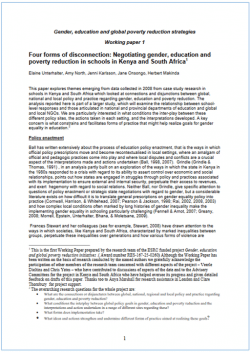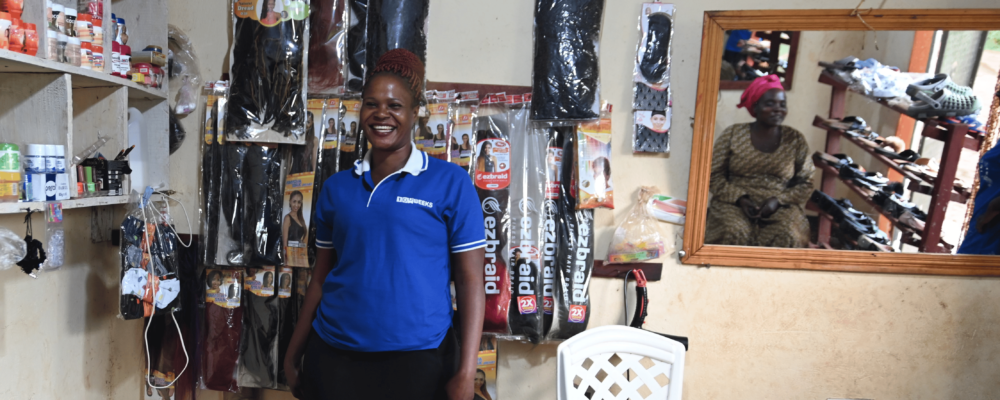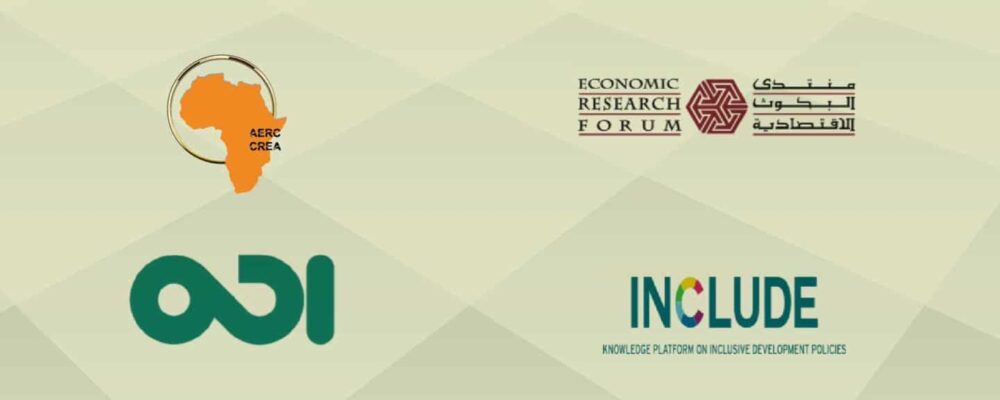- The implementation of gender and education policies in a Kenyan and a South African school reveals several disconnections between global/national gender equality policies and the local practices of highly unequal societies.
- This paper identifies four types of disconnections that impact effectiveness of gender equality policies in education. 1) The global or national policy prescriptions, such as promoting women teachers or advancing the needs of girls, are often out-of-step with everyday reality. 2) Local communities are not included in the development or interpretation of gender policies. 3) Schools and teachers are often unaware of the gender dynamics of poverty in the households of children they are teaching. 4) Goals of the national gender equality policy contrast sharply with the unreflective ways in which the school mirrors everyday practices associated with the sexual division of labour, including a culture that blames girls’ ‘immorality’.
- Intensive guidance of schools and inclusion of local communities in the design and implementation process is required to ensure that local African schools are better equipped to act on national and global gender policies.











